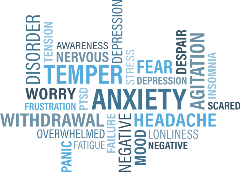Behavioral Health

Behavioral health is a major public health issue in the District of Columbia. Sadly, many of the legislative and regulatory initiatives around behavioral health are tied to other public health concerns, such as opioid addiction, maternal mortality, and health equity.
In partnership with the Washington Psychiatric Society, AMA, and American Psychiatric Association (APA), MSDC works to ensure that patients receive appropriate support for behavioral health issues, that the practice of psychiatry is supported in the District, and that psychiatrists are available to patients in the District.
MSDC was a proud supporter of the Behavioral Health Parity Act of 2017, which enshrined into law that all health plans offered by an insurance carrier meet federal requirements of the Wellstone/Domenici Mental Health Parity and Addiction Equity Act of 2008.
MSDC Statements and Testimony of Behavioral Health Issues
25th Council period information coming soon
JAMA Surgery - Female Surgeons Face Higher Risk of Infertility, Pregnancy Complications
A new study in JAMA Surgery and covered by The New York Times highlights the challenges female surgeons of reproductive age face in having children.
The study notes that currently 38% of surgery residents and 21% of practicing surgeons in the U.S. are women, with medical school graduate rates approaching sex parity. It also notes in the introduction that physicians face pressure to delay having children until after training, which for almost all surgeons is at "advanced maternal age". Other studies have shown that female surgeons are more likely to be childless, but there is little research on infertility and complications.
The study was led by Dr. Eugene Kim, who had a female surgeon colleague that suffered life-threatening pregnancy complications. The survey study included 850 surgeons (692 women and 158 men). The results showed female surgeons had twice the rate of pregnancy loss as the general population (42%). Compared to the male surgeons, female surgeons were more likely to delay having children due to their training, and had fewer children overall, and were more likely to use assisted reproductive technology.
The study also compared female surgeons with female partners of male surgeons to study if societal factors accounted for pregnancy and childbearing struggles. The results found female surgeons were more likely to suffer physical and behavioral setbacks during and after pregnancy than their non-surgeon counterparts. This led the authors to conclude that the physician lifestyle, and not solely societal factors universally impacting women, leads to female surgeons' childbearing struggles. Some of the factors highlighted include:
- Lack of paid leave or maternity leave during training
- Perceived damage to reputation due to absence
- 40+ hours of work weekly causing physical complications
- Prolonged standing with less water and food due to demands ofjob
- Reliance on IVT and ART to conceive
The authors propose three recommendations to address these issues:
1. Training programs should include clear, widely disseminated policies to support pregnant and expecting trainees
2. Institutions and practices should adopt supportive work plans for pregnant physicians and physicians on maternity leave
3. Trainees and physicians should be provided with resources, time, and space to meet their reproductive and childcare needs.
Sample of Legislation MSDC is Tracking in Behavioral Health
(see the whole list of bills here)
What does it do? The bill requires licensed health providers to complete 2 hours of CME on suicide prevention, assessment, and screening.
MSDC position: MSDC opposes the bill as written as the language does not encourage physician wellbeing or sufficient awareness of suicide prevention.
Current status: The bill had a hearing with the Committee on Health on June 10.

Leave a comment